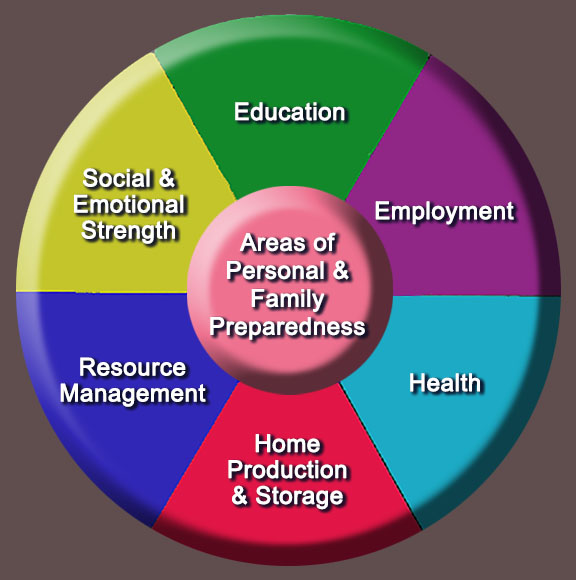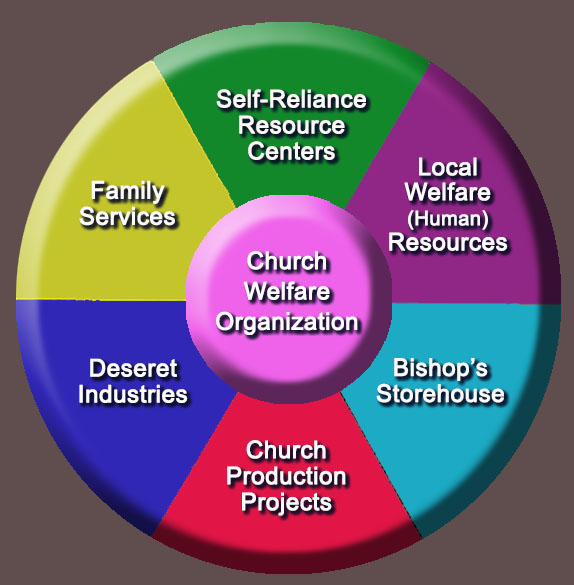

The Welfare System
in the Church of Jesus Christ of Latter-day Saints
Reading Assignments for the course
REL 480 - Church Organization and Leadership
Prof.
Marcus H. Martins, Ph.D.
Readings:
| General Handbook (2020) chapter 22 - Providing for Temporal Needs and Building Self-Reliance | |
| Author | Title |
|
|
|
| Pres. Gordon B. Hinckley | Rise to a Larger Vision of the Work |
| Pres. Marion G. Romney | The Purpose of Church Welfare Services (1977) |
| The Role of a Bishop in the Church Welfare Program (1979) | |
| Bishop Victor L. Brown | Rendering Assistance in the Lord’s Way |
| Pres. N. Eldon Tanner | Constancy amid Change |
| Elder Henry D. Taylor | The Law of the Fast (1974) |
| Elder Joseph B. Wirthlin | The Law of the Fast (2001) |
| Elder Dean L. Larsen | The Strength of the Kingdom Is Within |
| Pres. Heber J. Grant | Purpose of the Church Welfare System |
| Pres. Marion G. Romney | How Bishops Should Minister to the Poor |
| Dr. Marcus Martins | Fundamental
Principles of the Law of Consecration and Stewardship (video - 32 minutes) |
| Analyzing a Welfare Case (video - 24 minutes) | |
| Diagrams: | Areas of Personal & Family Preparedness |
| Church Welfare Organization | |
| Analyzing Welfare Cases | |
| Questions for Review | |
Pres. Heber J. Grant
Purpose of the Church Welfare System
Conference Report, October 1936
Our primary purpose was to set up, in so far as it might be possible, a system under which the curse of idleness would be done away with, the evils of a dole abolished, and independence, industry, thrift and self-respect be once more established amongst our people.
The aim of the Church is to help the people to help themselves. Work is to be re-enthroned as the ruling principle of the lives of our Church membership.
Pres. Marion G. Romney
How Bishops Should Minister to the Poor
Edited from "The Role of
a Bishop in the Church Welfare Program"
| Areas of Personal and Family Preparedness
| The Church Welfare System
|
Analyzing Welfare Cases:

Step 1:
- List all relevant issues (conditions, obstacles, strengths, weaknesses, opportunities) raised by the person
- List any questions that need further clarification
- Analyze the issues according to each area of personal and family preparedness
- Considering the underlying philosophy of Church welfare, what can the individual or his/her family do to remedy the situation independent of anyone else?

Step 2:
- List the types of additional help the individual (or family) may need
- What kinds of assistance can the Church Welfare System provide to this case (see the chart)?
- List the recommendations you would make to the Bishop
Questions for Review:
1. What is one outcome of the United Order in the lives of the poor? (Pres. Romney, “The Purpose of Church Welfare Services”)
2. How can material blessings be a part of the gospel? (Pres. Tanner, “Constancy amid Change”)
3. How can we control our material circumstances? (Pres. Tanner, “Constancy amid Change”)
4. What is the bishop’s duty in caring for the poor? (Bishop Brown, “Rendering Assistance in the Lord’s Way”)
5. How does a bishop obtain information about the material conditions of the people? (Bishop Brown, “Rendering Assistance in the Lord’s Way”)
6. What are some of the elements of the Church’s welfare services organization? (Bishop Brown, “Rendering Assistance in the Lord’s Way”)
7. Where can we find the real power or strength of the Church? (Elder Larsen, “The Strength of the Kingdom is Within”)